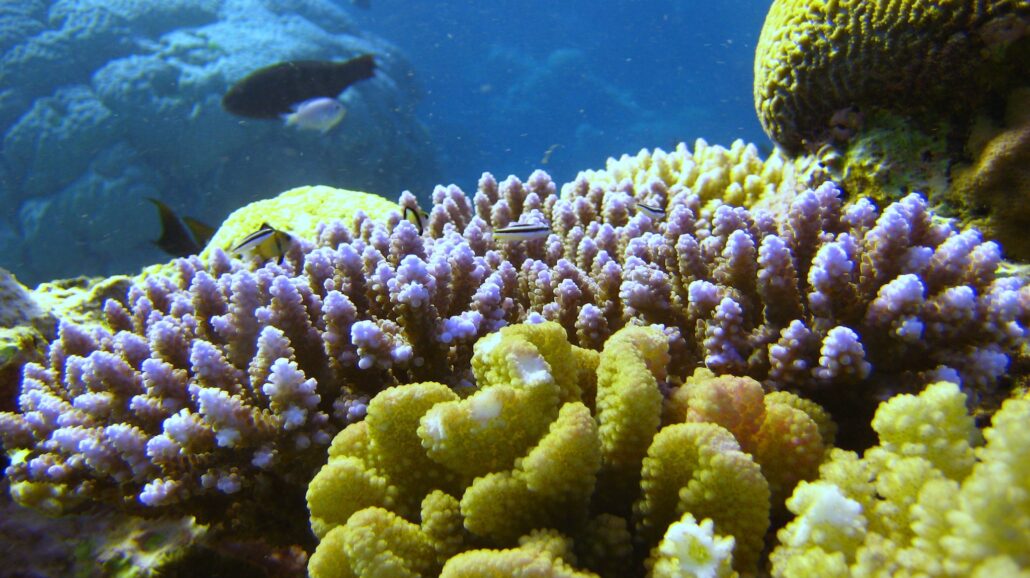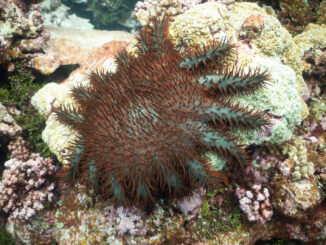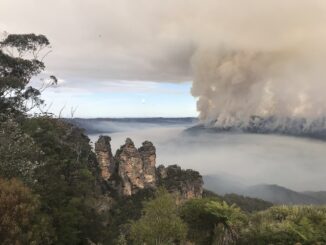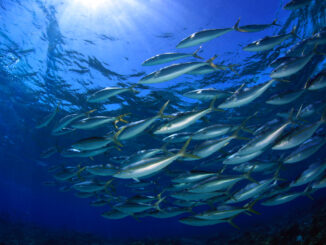
The Great Barrier Reef Marine Park is in danger and should be officially declared so, three climate scientists told reporters in a call this week.
The danger stems from long-term ocean water temperature trends and modeling that predict worsening conditions for the corals that build the spectacular reef structure.
The Great Barrier Reef has long been declared a Natural World Heritage Site by the United Nations Educational, Scientific, and Cultural Organization (UNESCO). Its World Heritage status is among the reasons it’s one of the top tourism destinations on Earth.
Last year, UNESCO put off declaring that the Great Barrier Reef is now a World Heritage Site “in danger” due to global warming, a sort of downgrading of its official status. Australia’s government fought hard against a proposal to do so, and a UNESCO committee was left satisfied that a plan was in place to protect the world’s largest reef system.
But that determination was a mistake, said Benjamin Henley, a scientist at the University of Melbourne. Two of his colleagues on the call agreed.
“The UNESCO process, in our view, should take account of the physical, the biological, and the human aspects, and it’s our assessment that the reef is in danger,” Henley said. “Clearly climate change is the long-term driver of the stress to this coral reef ecosystem, and in our view, the Great Barrier Reef is in danger.”
Evidence in the cores
The researchers studied core samples taken from coral specimens collected from across the reef and beyond, out into the greater Coral Sea region of the Pacific Ocean.
Combining that data with computer modeling of long-term shifts in ocean temperatures, researchers from the University of Melbourne, the University of Wollongong, and the University of Queensland say they were able to prove that the waters of the Great Barrier Reef are now warmer than ever and getting warmer still.
The study confirmed that today’s ocean temperatures are the warmest seen in 400 years. Higher ocean water temperatures increase the likelihood of severe coral bleaching events that appear to be happening more frequently.
“The future of the reef is most certainly in danger,” Henley stressed again.
Recent news seems to contradict this.
A new study published by the Australian Institute of Marine Science (AIMS) showed that the Great Barrier Reef has actually expanded in some regions. Overall, AIMS says the coral cover at GBR has increased.
The Great Barrier Reef Marine Park Authority acknowledged the AIMS finding and welcomed the discovery.
However, the researchers behind this latest ocean temperature study say they’re taking a longer-term view, while the AIMS study is a shorter-term assessment of GBR coral expanse.
Helen McGregor, a professor at the University of Wollongong, likened the difference between weather and climate. The AIMS study is more akin to a recent weather report, she said, while theirs is a longer-term climate picture.
“On shorter-term timescales reefs are showing some resilience, but looking at the longer term there are changes,” she said. “And we know from the geological record that they are tough critters, corals, but they’re not invincible.”
400 years of rising temperatures
Their study concludes that average GBR water temperatures recorded in the Southern Hemisphere summers of 2017, 2020, and 2024 have been “the warmest on record for four centuries.” 2020 had the highest average temperature in their 400-year assessment.
Temperature measurements were taken directly every year from 1900 to 2024, so the scientists were able to simply rely on the historical records. To go back further, they analyzed the chemistry of the coral samples captured from core sampling to cover water temperature readings from 1618 to 1995.
The temp readings from the core samples covering 1900 to 1995 provided the team with greater assurances that their methodology worked and that the readings taken by thermometers from the turn of the 20th Century were accurate.
For most of that 400-year history, the Great Barrier Reef’s water temperatures have been relatively stable. Then the data shows a noticeable climbing trend beginning around the 1920s.
The increase in water temperatures then accelerates and peaks in the 2020s.
If the trendline continues to rise, then the future of the GBR becomes increasingly uncertain, the team insists, regardless of recent AIMS data suggesting an expanding coral range.
A tragedy in the making
Coral bleaching occurs when high ocean temperatures compel the coral polyp animals to expel the beneficial single-celled organisms that produce energy for the coral via photosynthesis.
The GBR may be showing a greater coral expanse this year. Globally, researchers know that coral systems are contracting in size. Some estimates suggest that the world has already lost about a quarter of its previous coral reef extent.
The team believes a UNESCO declaration that the Great Barrier Reef is “in danger” will draw more attention to the long-term threat posed by climate change and greater urgency to the fight against global warming.
Henley said he fears for the future of an ecosystem that he hopes his two-year-old daughter will get to enjoy just as much as he does now.
“This is one of the most precious places on Earth,” he said. “It’s absolutely spectacular. It’s one of a kind.
“It’s iconic, it actually represents life as we know it, and the world is losing one of its icons.”
©2025 Public Parks
Park Info
Park:
Great Barrier Reef Marine Park
Location:
Australia
More Information:



